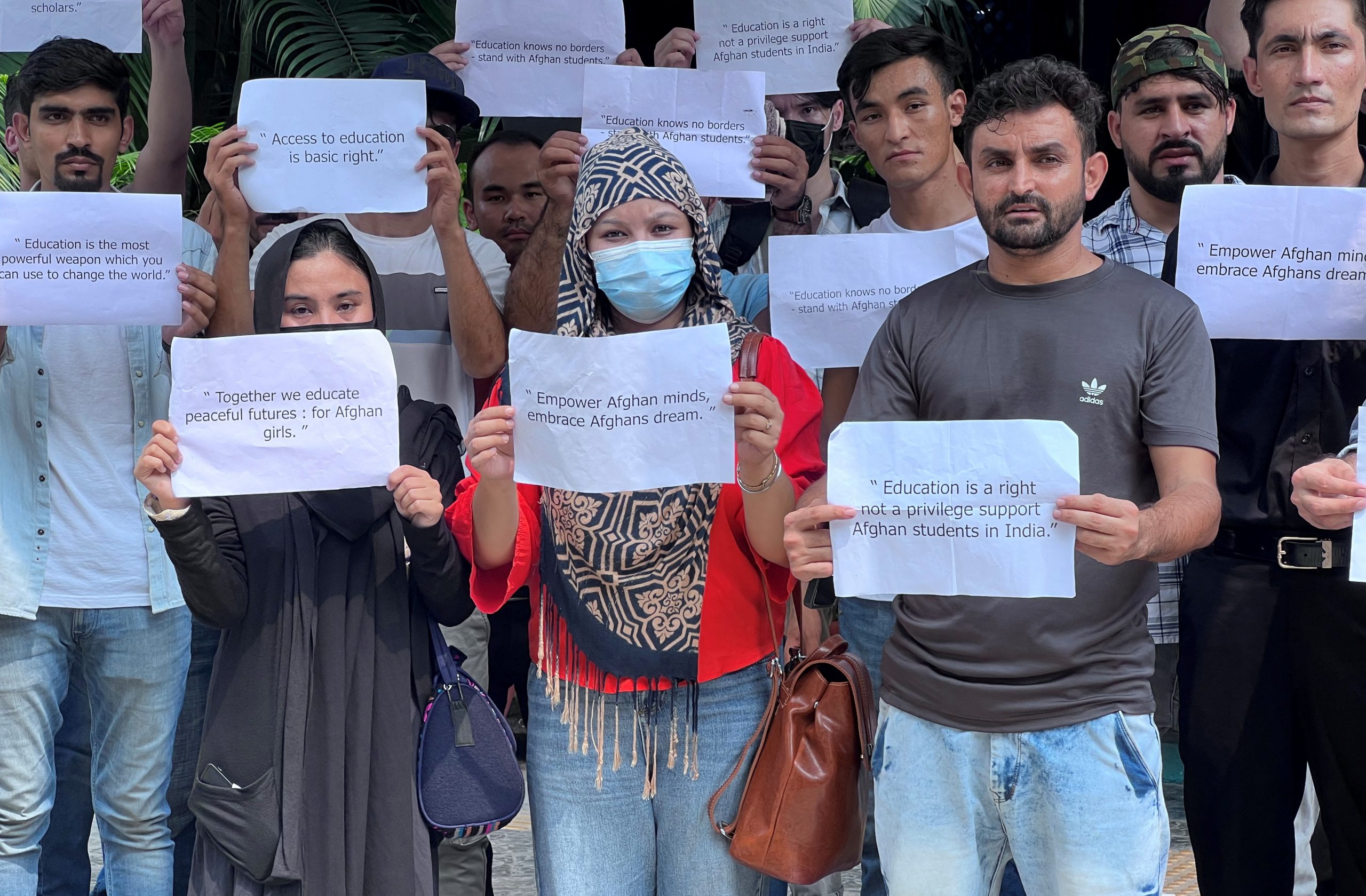Afghan students urge India to extend visas and restart scholarships
New Delhi (Reuters) – Hundreds of Afghan college students living in India despite the expiry of their student visas staged a protest in New Delhi on Wednesday to urge the Indian government to extend their stay and allow them to resume their studies.
India has in the past offered scholarships to thousands of overseas students from countries such as Afghanistan to pursue undergraduate and post-graduate degrees.
But after the return of the Taliban in Afghanistan in August 2021, many Afghan students in India were reluctant to return home due to fears of possible reprisals and a lack of opportunities due to the country’s economic crisis, the students say.
“The Indian government has not released scholarships for the current academic session (which started in July) and after the expiry of our visa we are living under constant fear of police arrest,” said Arsalan Qayumi of the Afghanistan Students’ Association, which staged the New Delhi protest.
“The students are neither getting scholarships nor permission to work in India,” he said.
Kumar Tuhin, director general of the Indian Council for Cultural Relations (ICCR), a unit of the Ministry of External Affairs, ICCR, said: “We understand that Afghan students are facing problems and the government is serious about addressing their concerns.”
He said no student would be forced to leave the country against their wishes, adding that the External Affairs Ministry would likely soon decide on the scholarships issue.
The ICCR has previously offered study grants to nearly 1,000 Afghan nationals to pursue undergraduate and postgraduate studies in India.
These grants consisted of a monthly stipend of between 25,000 rupees ($301) and 28,500 rupees to Afghan students, on top of subsidised tuition fees and travel expenses.
But for the last two years students say they have faced problems accessing these funds and many have left their studies or moved to other countries.
“I want to continue my studies in India, but the government has not released our stipends,” said Parwana Hussaini, who came to India in 2016 for higher studies. “I don’t want to go back, and I want to continue my higher studies.”



